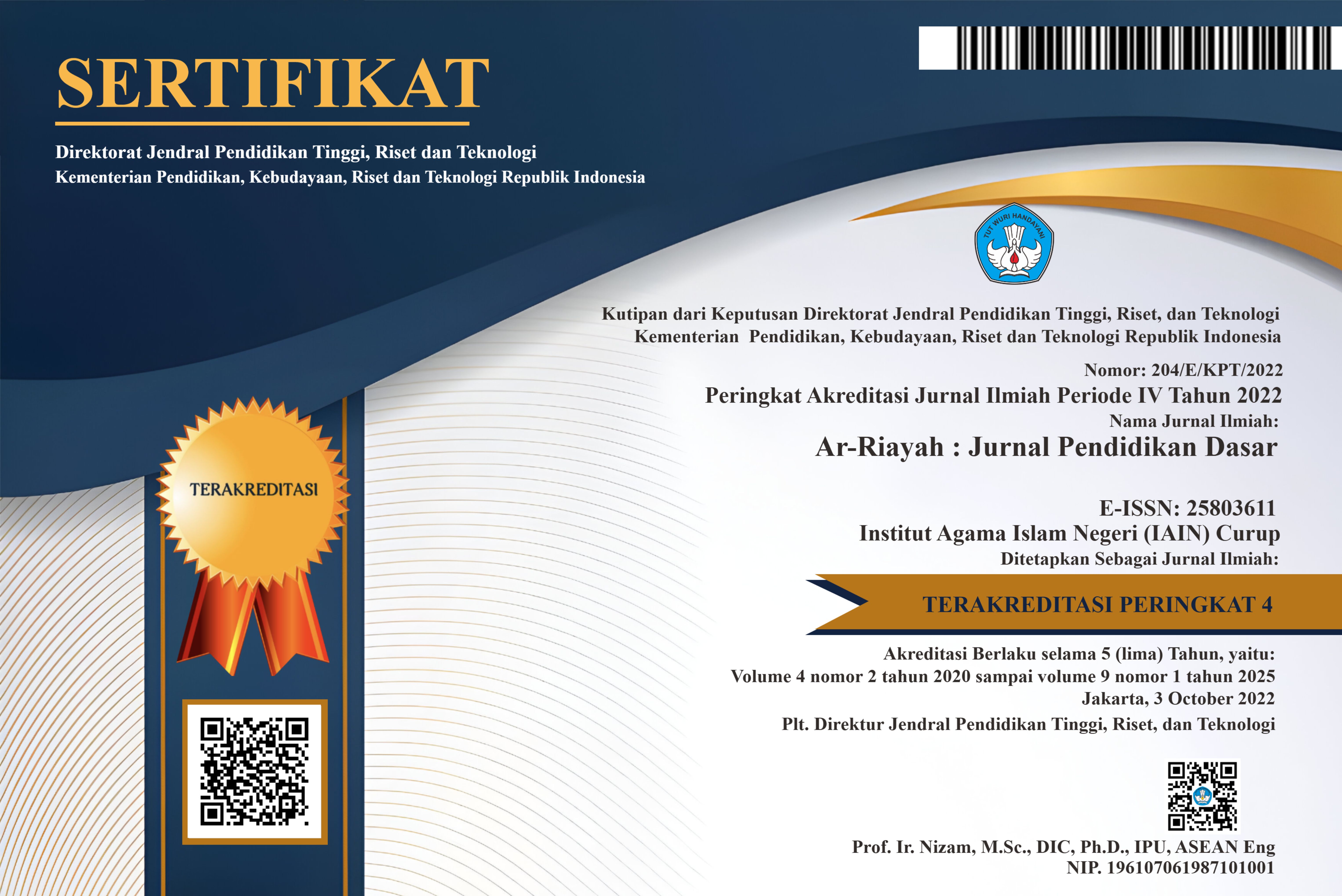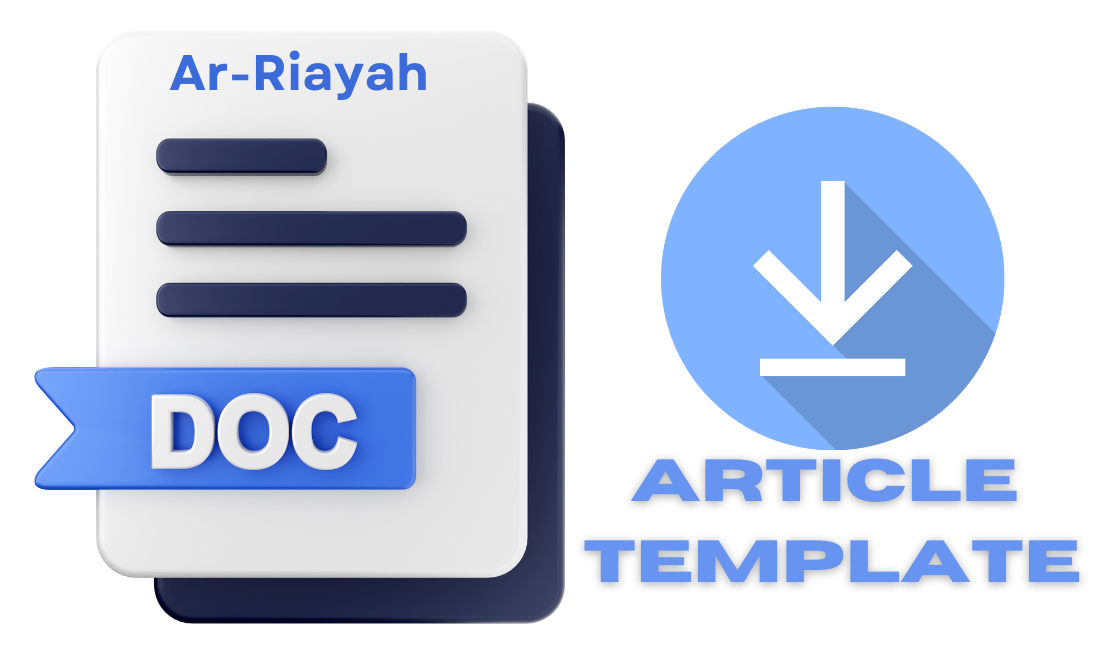Relevansi Kurikulum PGMI Terhadap Capaian Pembelajaran Mahasiswa PGMI IAIN Metro
DOI:
https://doi.org/10.29240/jpd.v3i1.863Keywords:
Learning Outcomes, Curriculum, PGMI Departmentjaran, kurikulum, Jurusan PGMIAbstract
Learning Outcomes (CP) are defined as abilities acquired through internalizing knowledge of attitudes, skills, competencies, and accumulated work experience. Learning Outcomes (CP) is a measure of what someone gets in completing the learning process both structurally and unstructured. Determination of learning outcomes must refer to three references / documents; namely KKNI, SNPT and SNPG. Furthermore, the formulation of learning outcomes is described in the Graduate Standards of Competency (SKL) which are expressed in four elements, namely: Attitudes, general skills, knowledge and special skills.This study aims to determine the relevance of the PGMI curriculum to the achievements of IAIN Metro student learning. The qualitative research is a type of library research. Techniques for collecting data through documentation, interviews and observation. Furthermore, the collected data was analyzed by qualitative descriptive techniques.Learning Outcomes in the curriculum of the PGMI IAIN Metro department in accordance with the provisions of KKNI, SNPT and SNPG are as follows; The four elements of graduation standards that must be mastered by students of the PGMI IAIN Metro are elements of attitude that are internalized during the learning process, elements of general skills are the ability to become teachers in general, the element of knowledge is in-depth knowledge in education, psychology and teaching and special skills that is ; the ability of graduates of study programs according to the field of science / expertise in this case is as a class teacher in SD / MI.
Downloads
References
Alhamuddin. Kurikulum Perguruan Tinggi Keagamaan Islam Mutu dan Relevansi. dalam Al-Murabbi Volume 3, Nomor 1 Juli 2016
Akmal. Relevansi Kurikulum PBS dengan Dunia Kerja. dalam al-Ta’dib. Volume 7 Nomor 1 Januari-Juni 2014.
Burhan Bugin. Metodologi Penelitian Kualitatif Altualisasi Metodologis ke Arah RagamVarian Kontemporer. Jakarta : PT RajaGrafindo Persada. 2012
Didik Setyawarno. Relevansi Kurikulum S1 Pendidikan Fisika Universitas Negeri Yogjakarta Terhadap KKNI Level 6 Pendidikan Fisika. dalam Edu Sains: Jurnal Pendidikan Sains & Matematika; Vol 2, No 1 (2014): Volume 2 Nomor 1 Juni 2014
Direktorat Jenderal Pendidikan Tinggi. Kemendikbud RI. Panduan Kurikulum Pendidikan Tinggi. 2014
Depdiknas. Buku Pedoman Kerangka Kualifikasi Nasional Indonesia. Jakarta: Direktorat Jendral Pendidikan Tinggi. 2010.
Fauzan. Integrasi Islam dan Sains dalam Kurikulum Program Studi Pendidikan Guru MI Berbasis KKNI. dalam JMIE : Journal of Madrsah Ibtidaiyah Education. 2017.
______. Kurikulum & Pembelajaran. Ciputat : Gaung Persada (GP) Press. 2017
Imroatus Sholihah. KKNI dalam Kurikulum Berbasis Learning Outcomes. Dalam LINGUA. Vol. 12, No. 1, Maret 2015. Pusat Kajian Budaya dan Bahasa Surakarta Indonesia.
Kaimudin. Pengembangan Kurikulum Perguruan Tinggi. dalam Al-Ta’dib Vol. 8 No.1, Januari-Juni 2015.
Lexy J. Moleong. Metodologi Penelitian Kualitatif. Bandung : Remaja Rosdakarya, 2005
Mukhtar. Bimbingan Skripsi, Tesis dan Artikel Ilmiah, Panduan Berbasis Penelitian Kualitatif Lapangan dan Perpustakaan. Ciputat : Gaung Persada Press. 2007
Nana Syaodih Sukmadinata. Metode Penelitian Pendidikan. Cet. Ke-3. Bandung : Remaja Rosdakarya. 2007.
Otaya, Lian G. Pengembangan Kurikulum Pragram Studi Manajeen Pendidikan Islam dalam Keterserapan Lulusan Pada Dunia Kerja. dalam Tadbir. Jurnal Manajemen Pendidikan Islam. Vol. 2 No. 1 2014.
Downloads
Published
How to Cite
Issue
Section
Citation Check
License
Authors who publish with Ar-Riayah: Jurnal Pendidikan Dasar agree to the following terms:
Authors retain copyright and grant the journal right of first publication with the work simultaneously licensed under a Creative Commons Attribution-NonCommercial-ShareAlike 4.0 International License (CC BY-NC-SA 4.0) that allows others to share the work with an acknowledgment of the work's authorship and initial publication in this journal.
Authors are able to enter into separate, additional contractual arrangements for the non-exclusive distribution of the journal's published version of the work (e.g., post it to an institutional repository or publish it in a book), with an acknowledgment of its initial publication in this journal.
- Authors are permitted and encouraged to post their work online (e.g., in institutional repositories or on their website) prior to and during the submission process, as it can lead to productive exchanges, as well as earlier and greater citation of published work (See The Effect of Open Access).











